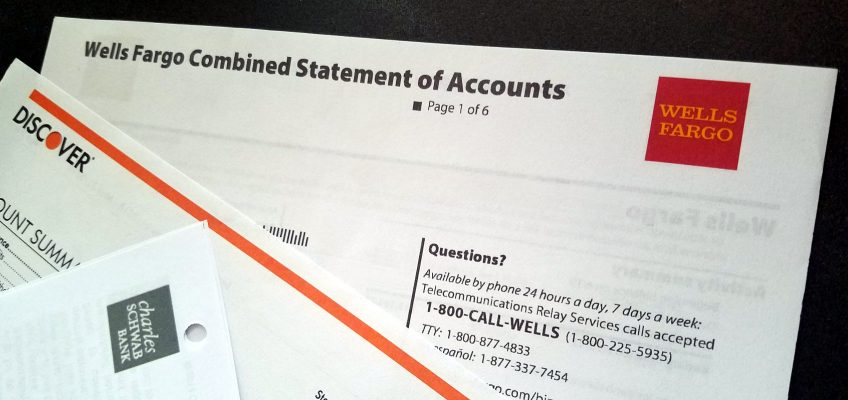Many people often feel bombarded with paper documents and email statements they need to keep track of, both monthly and annually. At times, it might be tempting to simply throw these documents in the shredder and/or hit the delete button to clean out one’s inbox.
However, when it comes to bank statements and other associated documents, it is important to remember that your checking and savings statements actually contain a written record of your money’s whereabouts and any associated transactions.
In the event of a stolen debit card, a purchase dispute, identity theft, or a hacked account or computer, bank account holders quickly learn to appreciate any statements they can find that will help them avoid the potential nightmare that can result from unwanted withdrawals or transactions. In this post, we will discuss the ideal timeline for keeping bank statements and other bank-related documents, and some tips on how to keep these essential documents handy so they are right at your fingertips when you need them.
One to Three Months
Bank and ATM deposit slips should be kept for one to three months. When you receive your monthly bank statements, be sure to review them to ensure that all deposits are accurately recorded. If you receive your bank statements through email, print them out or at least store them on an independent flash drive. If a deposit is missing or if the amount is not accurate, contact your bank immediately.
Of course while you’re at it, you should also reconcile your checking account statement to check for errors. If your bank still provides you with the paper checks you wrote, hang onto them for now. If you made any large purchases during the month with your debit card, such as jewelry, large appliances or anything with a warranty, it is a good idea to staple the receipt, along with warranty information to your bank statement and hang on to these as well.
If you haven’t already done so, investing in a fireproof and waterproof safety box for important papers is a smart decision. By storing all your important documents in one location, you’ll know right where to find them in case of an emergency.
Annual Review
Tax time is always a good time to review your past year’s documents, and bank account statements are no exception. If all your checks cleared properly, then you can toss any paper copies unless they are for big ticket items or anything tax-related you paid for by check.
You can also toss your check ledger from the previous year if you properly reconciled your checkbook throughout the year and are confident there are no errors. Keeping your previous year’s bank statements with your tax documents, along with any important receipts and warranties, is a great way to keep all your important documents organized for easy access.
Seven Years
Your bank statements along with quite a few other documents, such as old tax returns, fall in the seven year category. This is mainly for tax purposes, because the IRS may look as far back as 6 years during an audit. Bank statements are generally considered as supplemental forms to use in the preparation of tax returns. As long as you keep a copy of your final tax returns forever, the IRS does not require individuals to keep documents such as bank statements that are merely supplemental.
Keep Indefinitely
If you used your debit card for any purchases that increase in value such as fine jewelry or improvements that added to the value of your home, you should keep the receipts until you sell your property or collectibles, and even then you need to keep the receipts at least until you report the sale of these items on your tax return. If you made large purchases that came with a warranty, keep the debit card receipts for these items until the warranty expires. If you lose the receipt, you can keep the bank statement that records these transactions as a substitute.
Summary
To recap, keep deposit slips for 1 to 3 months, paper copies of checks for 12 months, your bank statements for seven years, and any essential receipts indefinitely. By getting into the habit of reviewing and organizing your bank statements and associated documents on a monthly and annual basis, you’ll stay ahead of the game and will be well-prepared for tax season and any other issue that might arise.
